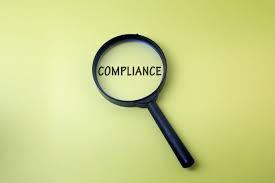Leveraging a Global Compliance Network
 Multinational companies cannot employ and maintain a sufficient number of dedicated compliance staff to ensure the effectiveness of an ethics and compliance program. That is a reality and we all know that is true.
Multinational companies cannot employ and maintain a sufficient number of dedicated compliance staff to ensure the effectiveness of an ethics and compliance program. That is a reality and we all know that is true.
Instead, global companies have to figure out ways to leverage other personnel from other functions to serve as some part of a global compliance functions. This regularly occurs with respect to compliance program functions and internal investigations.
Chief compliance officers have to rely on non-compliance staff on occasion to conduct global compliance functions, providing advice and counsel on compliance issues, or completing compliance functions such as due diligence reviews, gifts, meals and entertain expense approvals. In addition, global compliance network officials, on occasion, have to conduct internal investigations on potential Code and/or legal violations.
Everyone may be nodding their heads right now, saying so what is the big deal?
A CCO recognizes that, in reality, the CCO has to “outsource” internally important compliance functions to provide adequate global coverage of important issues. It is a process that can quickly undermine a compliance program. Every CCO knows that this is a huge challenge for the CCO and the compliance program.
When relying on a network of compliance officials who serve in other positions, there are a number of important issues that need to be considered and addressed on a continuing basis.
What positions should be eligible for serving in a global compliance network?
For example, should a regional CFO be permitted to serve as compliance official on a part-time basis? The issue is a serious one because there may be real and significant conflicts of interest that may arise when a senior official in a region serves as a part-time compliance officer. Also, the regional CFO may not have adequate time to devote to the compliance function.
On the internal investigation front, a high-level regional official may have serious conflicts in conducting an independent and fair investigation, without potential for conflict of interest over the subject matter of the investigation.
How does the CCO ensure a consistent ethics and compliance program when they depend on performance by non-compliance personnel?
A CCO relying on non-compliance staff may have restricted ability to supervise, evaluate and ultimately hold accountable a part-time non-compliance employee who is assisting the compliance program. If the CCO has input to the employee’s overall evaluation and compensation, that may alter the equation but usually CCOs rely on non-compliance staff to carry out compliance responsibilities by cajoling, encouraging and seeking to persuade them to perform at a certain level.
 CCOs may conduct regular regional and global meetings to bring together all compliance and non-compliance staff for planning and training meetings but there is no guarantee that such programs, usually constrained by limited budgets, will ensure consistent performance by global non-compliance staff.
CCOs may conduct regular regional and global meetings to bring together all compliance and non-compliance staff for planning and training meetings but there is no guarantee that such programs, usually constrained by limited budgets, will ensure consistent performance by global non-compliance staff.
What steps can be taken to maximize benefit of global compliance network?
CCOs need to approach the issue carefully and proper regard for planning. A CCO should identify tasks and responsibilities that are best suited for global non-compliance partners. In addition, the CCO should develop membership criteria so that the global network includes managers and employees who are appropriate or naturally suited for compliance responsibilities, and who have adequate time to dedicate to the function. If a company has a rotation program where business people are permitted to serve in compliance functions for a brief period of time, and vice versa, these participants are obvious candidates for growing a compliance network.















